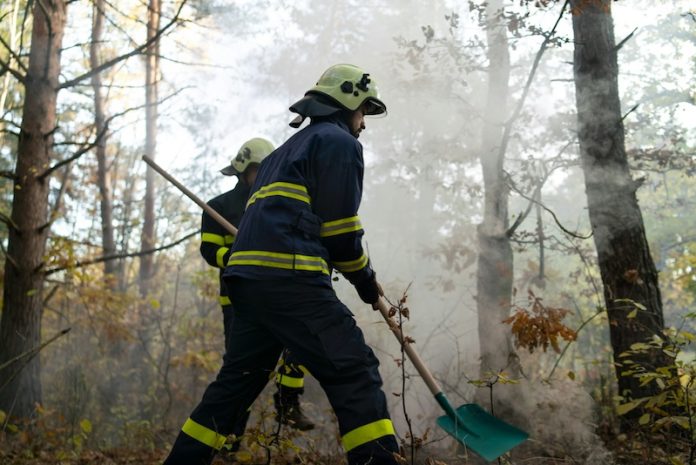
Wildfires are becoming more frequent and severe, raising concerns about their long-term health effects. A new study examining California wildfires has found that exposure to wildfire smoke can significantly impact heart health, but the risks vary depending on the fire. T
he study, published in the Journal of the American Heart Association, analyzed health records of over 3.2 million adults in the Kaiser Permanente Northern California health system.
The research team, led by Stacey Alexeeff, a biostatistician at Kaiser Permanente, discovered that people exposed to heavy smoke from the Mendocino Complex fires in 2018 faced a higher risk of heart-related illnesses and death.
Specifically, individuals in affected areas had a 23% increased chance of heart problems, including heart attacks, heart failure, strokes, and cardiovascular-related deaths. The risk of dying from heart-related causes was nearly 36% higherin 2018 for those exposed to high levels of fine particulate matter from the Mendocino fires.
Surprisingly, people exposed to smoke from the Camp fire, which was the deadliest wildfire in California’s history, did not show the same increased risk of heart issues. Researchers are still trying to understand why the two fires had such different health impacts.
One possible explanation is the duration of smoke exposure. The Mendocino Complex fires burned for over two months, with smoke polluting the air for up to 51 days in some areas. In contrast, the Camp fire was contained more quickly, with smoke lingering for only 11 to 15 days depending on the location.
Public health measures during the Camp fire may have also helped limit exposure. During that fire, schools were closed, outdoor activities were canceled, and residents were strongly advised to stay indoors or wear N95 masks when going outside. These efforts may have reduced the harmful effects of smoke on people’s health.
Another factor could be the types of materials that burned in each fire. Different fires may release different toxic substances into the air, depending on what was consumed by the flames. While researchers are not yet sure how this influences heart health, they suggest that the chemical composition of the smoke may play a role.
This study highlights the urgent need for more research on wildfire smoke and health risks, especially as climate change fuels longer and more intense fire seasons. The findings suggest that taking protective measures—such as staying indoors, wearing masks, and following public health guidelines—could make a significant difference in reducing the health impacts of wildfire smoke.
Review and Analysis
The study provides valuable insight into how wildfire smoke affects heart health, but it also raises new questions. The key takeaway is that not all wildfire smoke exposure is the same—factors such as duration, air quality measures, and the composition of smoke may influence health outcomes.
The contrast between the Mendocino Complex fires and the Camp fire suggests that early warnings and protective actions can help reduce health risks.
The Camp fire had strong public health messaging, leading to school closures and mask use, which may have helped protect residents. This highlights the importance of better public health responses to wildfires and ensuring that communities have access to protective resources.
The study also points to the need for long-term monitoring of wildfire survivors. While this research focused on heart health in the immediate aftermath of fires, long-term effects of smoke exposure—such as lung disease and other chronic health issues—need further investigation.
As wildfires continue to threaten communities, understanding their health impact will be critical. Future studies should examine which types of smoke are most harmful, how different fire prevention strategies affect health outcomes, and whether certain groups are more vulnerable.
In the meantime, people living in wildfire-prone areas should take smoke exposure seriously and follow safety measures to protect their health.
If you care about heart disease, please read studies about a big cause of heart failure, and common blood test could advance heart failure treatment.
For more information about heart health, please see recent studies about a new way to repair human heart, and results showing drinking coffee may help reduce heart failure risk.
The research findings can be found in the Journal of the American Heart Association.
Copyright © 2025 Knowridge Science Report. All rights reserved.



